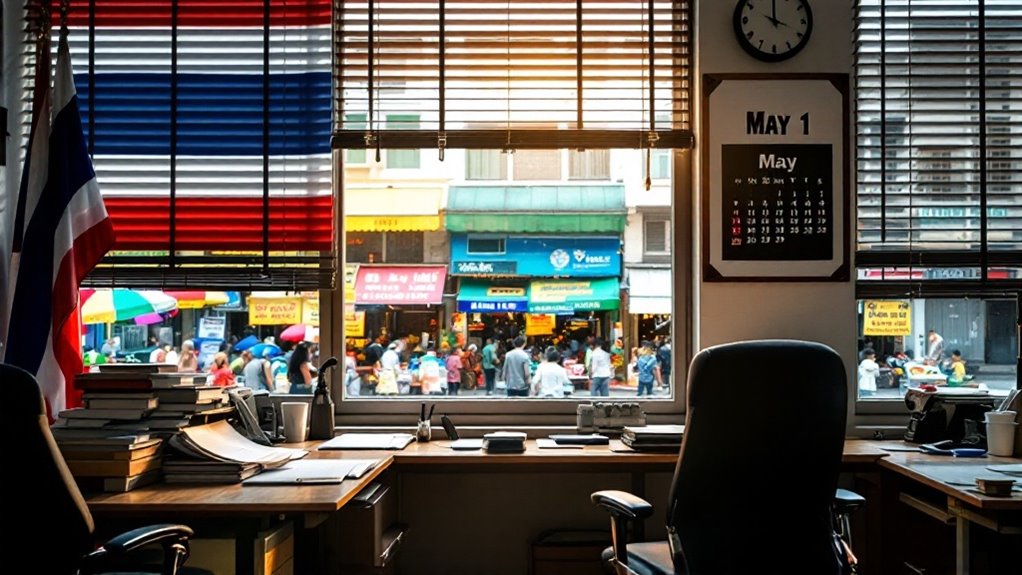In 2025, Thai seniors report exceptionally high happiness levels due to a blend of strong cultural respect for the elderly, widespread participation in community organizations, and consistent government welfare programs. High rates of healthcare access, social engagement through older persons’ clubs, and targeted mental health initiatives contribute considerably. Financial stability is supported by state programs and family networks. These factors combine to sustain well-being, especially as Thailand’s elderly population continues to grow. Further details show how these elements interact and evolve.
How has Thailand’s rapidly aging population shaped the well-being of its older citizens in 2025? The country’s demographic shift is both pronounced and influential, with adults aged 60 and above now constituting between 20% and 30% of the population. This rise is evident in the old-age dependency ratio, which climbed from 10.7% in 1994 to 31.1% in 2024, indicating a significant increase in seniors relying on working-age adults for support.
Despite this, national surveys consistently identify Thais aged 70 and older as the happiest demographic group, with their reported well-being surpassing that of younger generations. According to the latest Global Happiness Index, only 2% of Thai respondents reported being not happy at all, and older adults aged 70 and above reported the highest happiness levels. Elderly women represent 57.9% of the senior demographic, and those aged 60-69 make up the majority within this group.
Thais aged 70 and above report the highest levels of happiness, outshining the well-being of younger generations.
A notable shift in living arrangements has occurred, as 12.9% of seniors now live alone, compared to just 3.6% in 1994. However, reports indicate that these individuals still maintain high levels of well-being, likely bolstered by the proliferation of social clubs and community organizations. In 2023, over 3.9 million seniors actively participated in older persons’ clubs, and more than 175,000 were enrolled in educational institutions tailored for older adults.
Financial security remains a central consideration. While 5.1 million receive state welfare, 2 million seniors face personal debt, and annual losses to elder-targeted investment scams exceed 3 billion baht.
Nonetheless, pension gaps are often mitigated through a combination of social welfare programs and family support, resulting in lower reported financial stress among retirees compared to working-age groups. Healthcare access is robust, with annual screenings reaching over 9.8 million seniors and innovative care initiatives, including VR technologies, being implemented.
Social engagement is promoted by more than 30,000 learning volunteers and intergenerational knowledge transfer initiatives. Programs like the Brain Bank and Treasury of Wisdom foster purpose and connection, with thousands of seniors sharing expertise and life experience.
Mental well-being is further supported by cultural reverence for elders and government mental health campaigns targeting loneliness and depression. Thailand’s seniors prioritize stability and social ties over income growth, contrasting with the economic anxieties faced by younger generations.
As a result, in 2025, Thailand ranks seventh globally for happiness, with its aging population serving as a model for senior well-being.









